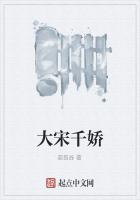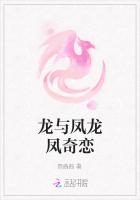"Sir," the boy finally said, "shouldn' t I be learning more moves?"
"This is the only move you know, but this is the only move you' ll ever need to know," the master replied.
Not quite understanding, but believing in his teacher, the boy kept training.
Several months later, the master took the boy to his first tournament. Surprising himself, the boy easily won his first two matches. The third match proved to be more difficult, but after some time, his opponent became impatient and charged; the boy deftly used his one move to win the match. Still amazed by his success, the boy was now in the finals.
This time, his opponent was bigger, stronger, and more experienced. For a while, the boy appeared to be overmatched. Concerned that the boy might get hurt, the referee called a time-out. He was about to stop the match when his judo master intervened.
"No," the judo master insisted, "Let him continue."
Soon after the match resumed, his opponent made a critical mistake: he dropped his guard. Instantly, the boy used his move to pin him. The boy had won the match and the tournament. He was the champion.
On the way home, the boy and his judo master reviewed every move in each and every match. Then the boy summoned the courage to ask what was really on his mind.
"Sir, how did I win the tournament with only one move?"
"You won for two reasons," the master answered. "First, you' ve almost mastered one of the most difficult throws in all of judo. Second, the only known defense for that move is for your opponent to grab your left arm."
The boy' s biggest weakness had become his biggest strength.
有时,一个人的最大弱点将会变成他的最大优势。有这样一个故事,故事的主人公是一个10岁的男孩。一次可怕的车祸夺走了他的左臂,然而他决定对抗现实去学习柔道。
男孩开始向一位年长的日本柔道师傅学习。他做得很好,不过他不明白为什么师傅训练了他三个月,却只教给他一个动作。
“先生,”男孩终于问道,“我们应该学习别的动作了吧?”
“这个动作是你学到的唯一的动作,不过也是你唯一需要学习的动作。”师傅回答说。
男孩不明白师傅的话,可他相信自己的老师。因此,他继续练习这个动作。
几个月后,师傅带着徒弟参加了他的第一次柔道锦标赛。令男孩惊讶不已的是,他非常轻松地取得了头两场比赛的胜利。第三场比赛比前两场要困难得多,不过经过一番比试,男孩的对手开始渐渐变得急躁和冲动,因此男孩熟练地用他的独招战胜了对手。仍然惊讶于自己的胜利的男孩,此时打入了决赛。
这回,比赛对手块头更大、更强壮、更有经验了。有一段时间,男孩有些招架不住。裁判担心男孩可能会受伤,便叫了暂停。就在裁判将要终止比赛的时候,师傅阻止了他。
“不要停下,”师傅坚持说,“让他比下去。”
比赛立即重新开始。这时,男孩的对手犯了一个致命的错误:他放松了警惕。刹那间,男孩用他的独招牵制住了对手。男孩获胜了,他战胜了所有的对手,成为冠军。
在回家的路上,男孩和师傅沉浸在每场比赛的每个动作之中。男孩鼓起勇气问师傅心里是怎么想的。
“师傅,我为什么只用一个动作就赢得了冠军?”
“你赢得冠军有两个原因,”师傅回答说,“第一,你已经掌握了柔道中最难学的一个摔打动作。第二,对于你的对手而言,能够防御这个动作的唯一办法就是抓住你的左臂。
男孩最大的弱点成了他的强项。
devastating ['devsteiti] adj. 毁灭性的
Mountains create their own weather and in the biggest range in the
world, this can have a devastating intensity.
山脉创造了它们自己的气候,在世界上绝大多数范围内,这种气候可能造成极大破坏。
tournament ['tunmnt] n. 锦标赛;联赛
He was the best boxer in the tournament.
他是本届联赛的最佳拳手。
deftly ['deftli] adv. 灵巧地;熟练地;敏捷地
She deftly wove the flowers into a garland.
她灵巧地把花编成了一个花环。
intervene [,int'vi:n] v. 干涉;干预;调解;干扰;阻碍
People feel international organizations must be set up to intervene in
world affairs to resolve these problems.
环境问题已变得如此重要,以至于人们觉得有必要成立国际组织,并介入国际事务解决这些问题。
有时,一个人的最大弱点将会变成他的最大优势。
有一段时间,男孩有些招架不住。
男孩获胜了,他战胜了所有的对手,成为冠军。
Concerned that the boy might get hurt, the referee called a time-out.
concern that:担心
He was about to stop the match when his judo master intervened.
be about to:即将;打算














